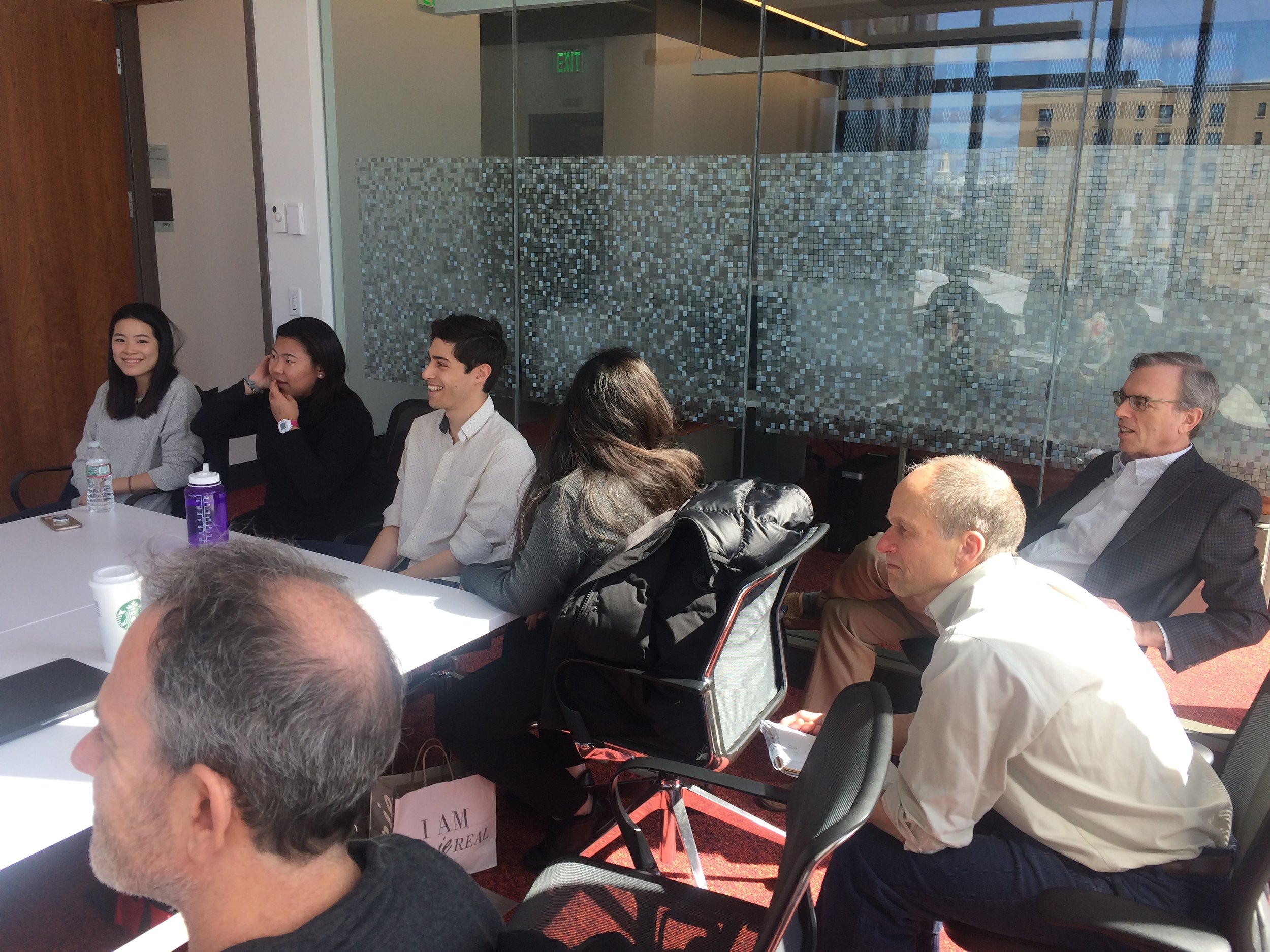What if You Tried Risking It?
/Yuna Hur & Elaine Cheung - Versions of a Retail Pop-Up, Spring 2018
I’m honored to host a blog by one of my amazing mentees, Yuna Hur ‘18. Last year, as a senior, it was time to push academic limits 1 last time before graduating. This is her story about why it’s so important to take risk … because you never know what can happen! Thank you, Yuna!! *
Top: Elaine Cheung, Yuna Hur, students & Critiquers for ENGN 1971
May 2019: It has already been a year since I was persuaded to take a class Deb introduced to me my second semester senior spring [2018]. The class was called Iterative Design of Retail Value Propositions and Experiences - a blend of design and engineering. I never took courses related to business nor art, as I concentrated in cognitive science and education studies. My coursework had primarily focused around the topic of how people learn, both from a cognitive - neuro & psych perspectives - as well as an applied standpoint in my classes in the education department. I was in a good spot with regards to my concentration requirements. Like many other seniors, I was looking at loads of classes across departments. I asked Deb what time and how frequently the course would meet, and she said it would be once a week. If I’m honest, that was a huge selling point - again, because it was senior spring, though there was a huge part of me that was feeling incredibly insecure and unprepared for the course... no background in any of the topics that the course described. Nonetheless, because who can turn down Deb (?!!!?!!), I signed up for the course, not knowing what to expect, who’d be in the class, and how prepared I’d be for this mysterious course.
Here are 5 (of many) takeaways from taking this class (in no particular order) which are important for life beyond college:
Have a plan and be flexible - I started out the course thinking in my perfectionist mindset -- craving to find and work towards THE ideal solution. In this way, I have found myself digging deeper into details that were all uncertain because there was no singular “final answer”. I experienced a shortcoming from the expense of losing sight of what I initially set to work towards. Quickly, Deb convinced my perfectionist-self to take this class pass/fail -- and NOT just because it was my senior spring. This has been one of the best decisions throughout my time at Brown because it gave me permission and room to be okay with uncertainty, be okay with taking risks, and be okay with using my imagination.
Value collaboration with individuals from diverse backgrounds - In this class, students came from a variety of concentrations, ranging from International Relations, Architecture, Sociology, Applied Math, Engineering, Economics...etc. My partner studied History of Art and Architecture, and I studied Cognitive Science and Education. We each brought different skills, as she shared her keen eye to visually display her reasoning, and I shared my systematic reasoning in informing detailed decisions we made for our project.
Be human-centered - When thinking of different personas for the start-up the class was based on, there was no “one-size-fits-all” mold. My partner and I worked to create very different personas by pulling from our vastly-different experiences and socializations. This process, in-it-of-itself reminded me of how meaningful the individual experiences we bring to the table are. Developing these personas and then the different variations of the start-up’s pop-up store served as a reminder to know and expand intentional awareness to context-specific situations.
Seek intentional feedback - Throughout the course, each group had consistent opportunities to pitch the progress they’d made to the class. Following each group’s presentation, there was always time dedicated for individuals to share thoughts, ask questions, and for presenters to ask and respond. I appreciated these interactions because the feedback I’d receive was immediate, relevant, and specific so that I would leave class with tangible things to work on for my ideas to continue growing.
Trust your inner voice - During the first weeks, there were students from so many concentrations and with such awesome experiences. I was fangirling my classmates’ eloquent and thoughtful insights in awe of feeling like they were all so much better qualified for this course than I was. Students who were studying visual arts, for instance, had created aesthetically-pleasing vision boards, while students who were architecture concentrators precisely measured out floor plans. I didn’t feel confident in my ideas because I didn’t feel like I was good enough on understanding the business or design sides which the course was centered on. But what I was realizing throughout the course was that the value I was adding was the people-centered cognitive science and education background to my work. This was a rare moment in my educational experience where I relied on my intuition to brainstorm, create, and deliver the thousands of decisions that were made throughout the process.
Kathy Spoehr, me, Yuna
I thank and am forever grateful for Deb, Barbara, and all of my classmates who I played with, explored with, and grew with together. These five takeaways have been incredibly valuable to the work that I not only engage with today but also in my future work -- which is uncertain AND exciting!
*In true serendipity, Yuna’s advisor taught me one of my first Cognitive Science classes 1st semester my freshman year, Kathy Spoehr. Generations of strong, bright women!!!












